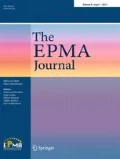Background
Sepsis and its after-effects are currently significant problems in hospital medicine. Successful treatment depends on the early detection of the etiological agent of the sepsis and of any antibiotic resistances. Bacteria that belong to Staphylococcus spp. are the most important Gram-positive causative agents of sepsis and are responsible for ~ 50% of sepsis and pyoinflammatory diseases in Ukraine. Up to 70% of Ukrainian staphylococci are also methicillin resistant which is determined by the genetic cassette SCCmec encoding the mecA β-lactam resistance gene. Besides mecA, some types of SCCmec s can also carry different genes of resistances to antibiotics like vancomycin etc. Until now nine types of SCCmec have been discovered based on the genetic construction, described and epidemiologically traced worldwide. It is now clear that new SCCmec s with enhanced antibiotic resistance characteristics are naturally appearing due to anthropogenic activities. Ukraine being geographically on a crossroads between Asia and Europe, having a big borderline with four countries-member of the EU and three non-EU European countries and exploiting a medical system where any antibiotic is easy to get without a doctor prescription can have a really dramatic impact on the SCCmec evolution in Europe. For this reason, a rapid screening assay with the following analysis of the SCCmec s is very much needed for the early identification of new SCCmec s in Ukraine and prediction of new epidemiological waves in Europe.
The aim
was to elaborate a PCR rapid diagnostic test to reveal SCCmec in Ukrainian staphylococci.
Results
A new “in house” multiplex PCR test based on [3] for the direct simultaneous identification of SCCmec was developed and implemented.
Conclusions
A rapid PCR-based test for β-lactam resistance identification is now available in Ukraine. A collection of Ukrainian MRSA from different regions with PCR-determined presence of SCCmec has been now created and constantly supplemented.
Outlook and expert recommendations
We recommend to organize project based on direct bacteria identification using SCCmec for implementation rapid screening in Ukraine. The epidemiological monitoring of Ukrainian SCCmec s with the detailed analysis of new SCCmec variants may impact prediction of new epidemiological waves in Europe.
References
Martineau et al: J. Antimic. Chemotherapy. 2000, 46: 527-533. 10.1093/jac/46.4.527.
Strommenger et al: J Clin. Microbiol. 2003, 41 (9): 4089-4094. 10.1128/JCM.41.9.4089-4094.2003.
Huletsky et al: J. Clin. Microbiol. 2004, 42 (5): 1875-1884. 10.1128/JCM.42.5.1875-1884.2004.
Cuny , Witte et al: Clinical Microbiology and Infection. 2005, 11 (10): 834-837. 10.1111/j.1469-0691.2005.01236.x.
Author information
Authors and Affiliations
Corresponding author
Rights and permissions
This article is published under an open access license. Please check the 'Copyright Information' section either on this page or in the PDF for details of this license and what re-use is permitted. If your intended use exceeds what is permitted by the license or if you are unable to locate the licence and re-use information, please contact the Rights and Permissions team.
About this article
Cite this article
Moshynets, O.V., Rymar, S.U., Liutko, O.B. et al. Perspectives of epidemiological control of the MRSA subpopulations in hospital patients with sepsis via molecular detection, genetic analysis and following typing of methicilin resistance-carrying mobile genetic elements SCCmec in Ukraine. EPMA Journal 5 (Suppl 1), A132 (2014). https://doi.org/10.1186/1878-5085-5-S1-A132
Published:
DOI: https://doi.org/10.1186/1878-5085-5-S1-A132

